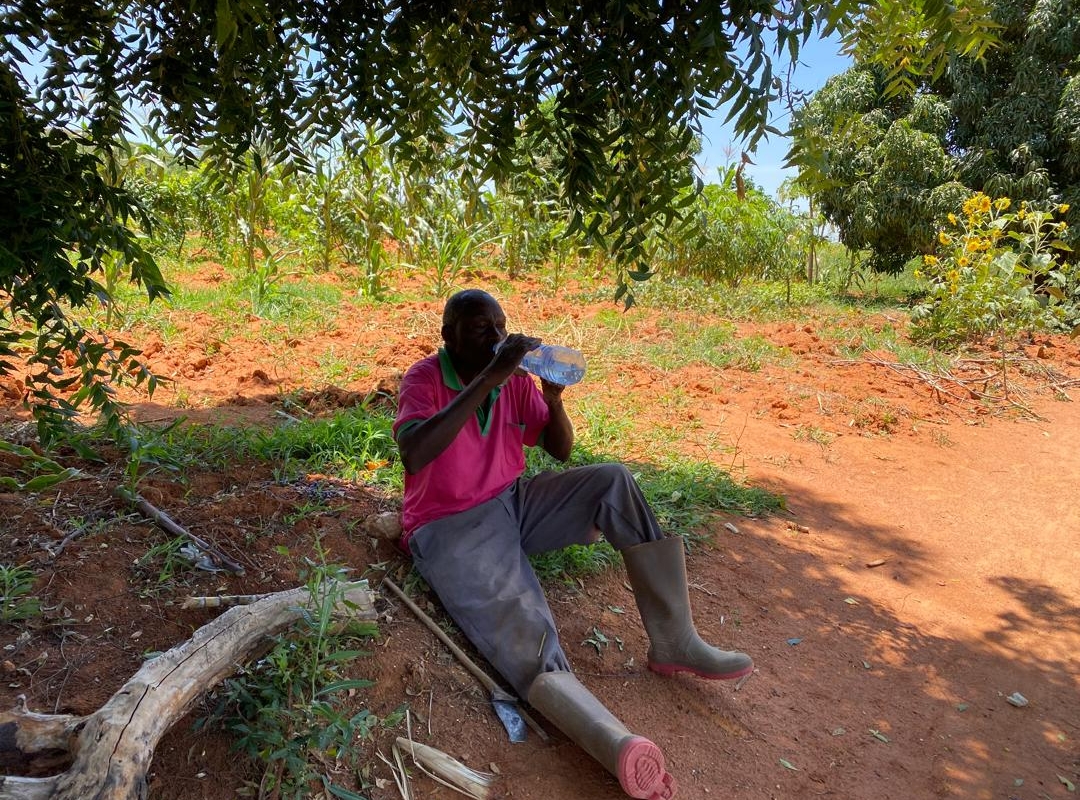Do Trees Save Lives? Turning Data into Impact in Tanzania’s Fight Against Heat

Climate change is heating up our world and this is becoming more and more tangible in the agricultural fields of central Tanzania where workers spend long hours under the sun, with little shade and limited access to water. For many, this means more than just discomfort: it brings real risks of dehydration, kidney disease, and cardiovascular strain.
Our research project, KISHADE (Kisiki Hai Sustainable Heat Adaptation Development), funded by the Wellcome Trust, is working to change this. We are asking a simple but urgent question: Can trees protect farmers’ health?
Over the past four years, LEAD Foundation has helped more than 260,000 households regenerate 23 million native trees through Farmer Managed Natural Regeneration (FMNR). Farmers already report that tree cover generates a cooling effect on their land and makes work more bearable. What has been missing, however, is hard evidence linking these microclimate benefits to actual health outcomes.
Our study is designed to fill that gap. Using a quasi-experimental design, we combine multiple methods to capture both the science and lived experience of heat. Farmers’ health is monitored through biometric data, including body temperature, hydration levels, cardiovascular strain, and kidney stress, while detailed microclimate mapping with drones, loggers, and portable sensors tracks conditions such as air and soil temperature, humidity, and shade. Alongside this, ethnographic fieldwork in eight villages documents how farmers experience and adapt to extreme heat, ensuring that local knowledge is central to the findings. Finally, remote sensing provides landscape-scale insights on vegetation cover, linking individual and community realities with broader environmental change. Together, these approaches will allow us to rigorously quantify how trees reduce heat stress for farm workers.

Citizen Science in Action
What makes this research unique is that it is not just done for farmers, but it is co-designed with them.
- Farmers wear sensors and take part in medical screenings.
- Local champions co-design the experiments and collect microclimate data.
- Communities share their own heat experiences through focus groups, interviews, and storytelling.
This way, farmers play a central role in the research and their lived knowledge grounds the science, and their voices shape the findings.
While numbers show trends, stories make them matter. Farmers describe how shaded fields keep them working longer, how tree cover reduces exhaustion, or how water is conserved under cooler soils. These personal accounts inspire trust, create ownership, and spread practices farmer-to-farmer far beyond the study sites
From Action to Impact
Our aim is not only to collect data, but to influence action. The evidence and stories emerging from Dodoma will inform:
- Training for health workers, extension officers, and champion farmers, turning knowledge into practical support.
- Community awareness programs co-designed with LEAD Foundation, building resilience from the ground up.
- National policy, including Tanzania’s Heat Adaptation Strategy, to scale low-cost, sustainable solutions like FMNR across the country.
The fight against climate change is often described in terms of emissions, degrees, and thresholds. But in Tanzania, it is also about the sweat on a farmer’s brow, the hours of work lost to exhaustion, and the relief of shade under a regenerated tree.
As the project team prepares to share early findings at the upcoming Health Summit on Climate and Health in Dar es Salaam, by bringing together citizen science and storytelling, we aim to turn data into action, and action into real impact for those most exposed to the heat.